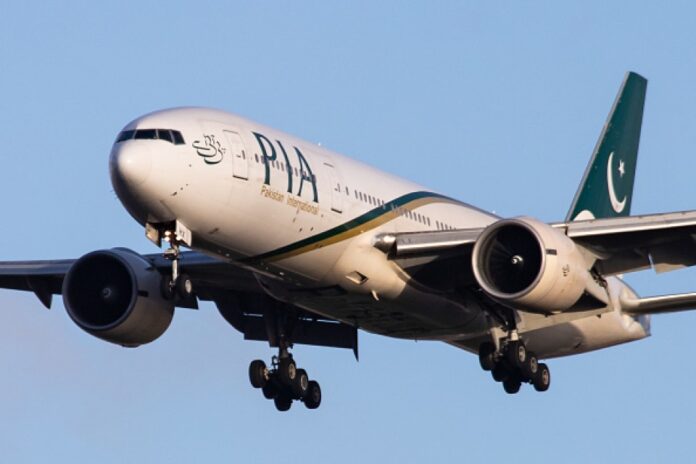Pakistan is moving forward with the long-awaited privatization of Pakistan International Airlines (PIA), with a final auction set for October 30. Finance Minister Muhammad Aurangzeb, attending the World Bank and IMF annual meetings in Washington, confirmed that the process has faced delays due to macroeconomic instability and the need for thorough due diligence by potential investors. However, these issues have now been resolved, and the auction is ready to proceed.
The government, facing pressure from the IMF to reform state-owned enterprises, has also focused on privatizing other key assets. Along with PIA, Islamabad’s international airport is scheduled for outsourcing in November as part of the government’s broader privatization agenda. These measures are seen as crucial steps to stabilize the country’s economy, which has been hit by inflation, dwindling foreign reserves, and a ballooning public debt that currently stands at 69% of GDP.
The privatization of PIA has been a particularly complex process. Aurangzeb mentioned that the delay was partly due to the scrutiny required by both local and international bidders. In addition, the legal framework governing the auction needed to be carefully reviewed to ensure transparency and fairness in the bidding process. Six consortia have been pre-qualified to bid for a 60% stake in PIA, including major local and international firms.
Meanwhile, the National Assembly was informed that the government’s final auction of PIA was initially planned for October 1 but was delayed due to low bidder interest and litigation issues concerning the airline’s aging fleet and Civil Aviation Authority matters. Parliamentary Secretary for Communications Gul Asghar told the assembly that the government had now completed all steps required for the final auction, which will proceed on October 30.
Asghar added that PIA’s operational assets have been separated from its other assets to ensure clarity in the privatization process. With privatization now underway, the government aims to attract serious investors who can revamp the financially struggling national carrier.
Alongside the privatization, the government is addressing other economic challenges as part of the IMF-backed reform program, including increasing exports and reducing the country’s reliance on borrowing. Minister of State for Finance Ali Pervaiz Malik informed the National Assembly that no restrictions on the import of raw materials have been imposed post-IMF program finalization, as the government seeks to bolster the export sector.
The privatization of PIA is just one part of a larger restructuring plan aimed at boosting economic growth and reducing government debt. The move comes as Pakistan continues to grapple with inflation, reduced purchasing power, and high electricity costs, which have burdened both the economy and ordinary citizens.
The success of PIA’s privatization, along with other key state-owned enterprises, is seen as vital for Pakistan’s economic stability. Failure to address these structural issues could further undermine investor confidence and slow down economic recovery efforts. The upcoming auction is a significant milestone in this process, with hopes pinned on a successful sale to help turn the ailing airline around and reduce the financial burden on the government.




